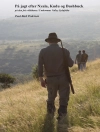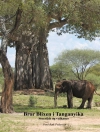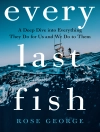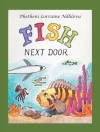Game fishes, particularly those of the salmon family, are critical indicators of the health of those ecosystems upon which we now know we are dependent. As the authors of this important environmental book argue, “Our game fishes [then] serve as more than merely an indicator of healthy waters. Instead, they can be regarded as iconic of the ecosystems in which they occur.” Moreover, “the quality requirements of different types of fish population have formed the backbone of a great deal of water management in the UK, Europe and the USA over several decades.”
With sections on how and why Britain’s game fishes are under pressure from changes in land use, agriculture, housing needs, etc. – and their concomitant pollution effects – this book assesses how our knowledge of these game fishes reflect the changing values we place on our surrounding wildlife.
Table of Content
Authors’ biographies
Preface
Part 1 The native game fishes of the British Isles
1 A natural history of Britain’s game fishes
2 The Atlantic salmon and its amazing life-cycle
3 Brown trout or sea trout
4 The Arctic charr
5 The grayling
6 The whitefishes
7 Rainbow trout: the familiar alien
8 Realising the value of the British game fishes
Part 2 British game fishes under pressure
9 The making and breaking of the modern world
10 A brief unnatural history of the British game fishes
11 Net results
12 Muddying the waters
13 Down on the farm
14 Salmonids under pressure
Part 3 Game fishes for the future
15 Sea change
16 Changing rules
17 Changing values
18 We the people
19 Game fishes for tomorrow
Bibliography
Index
About the author
Paul Knight has been involved with fish for most of his working life, including catching them as a commercial fisherman and angler, growing them as a trout farmer and now trying to conserve them as Chief Executive of the fisheries environmental charity, the Salmon & Trout Association (S&TA). He is a Council member and Fellow of the Institute of Fisheries Management (IFM), and spends his time attempting to influence government departments and agencies to follow policies that will protect the aquatic environment and all its dependent species. He writes for various fisheries-related and environmental magazines, and has successfully published a book of angling tales, Amazing Fishing Stories. He lives with his wife, Angela, and son, Archie, in Wiltshire.












